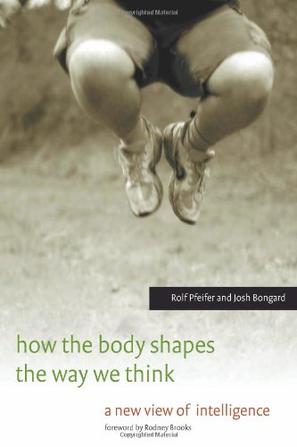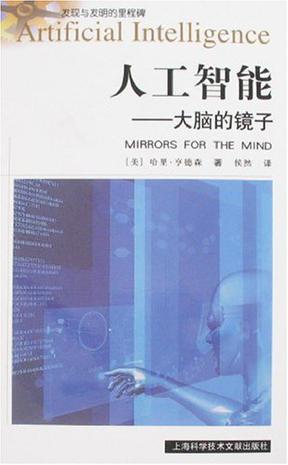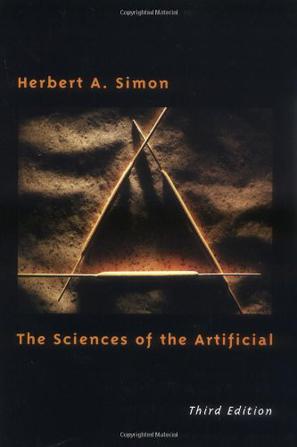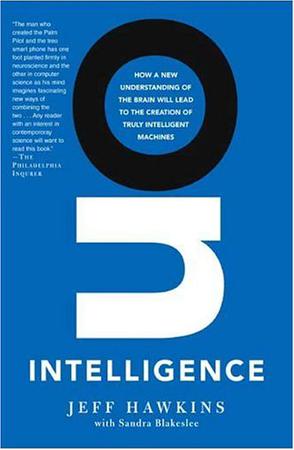-

How the Body Shapes the Way We Think
How could the body influence our thinking when it seems obvious that the brain controls the body? In How the Body Shapes the Way We Think, Rolf Pfeifer and Josh Bongard demonstrate that thought is not independent of the body but is tightly constrained, and at the same time enabled, by it. They argue that the kinds of thoughts we are capable of have their foundation in our embodiment--in our morphology and the material properties of our bodies.This crucial notion of embodiment underlies fundamental changes in the field of artificial intelligence over the past two decades, and Pfeifer and Bongard use the basic methodology of artificial intelligence--"understanding by building"--to describe their insights. If we understand how to design and build intelligent systems, they reason, we will better understand intelligence in general. In accessible, nontechnical language, and using many examples, they introduce the basic concepts by building on recent developments in robotics, biology, neuroscience, and psychology to outline a possible theory of intelligence. They illustrate applications of such a theory in ubiquitous computing, business and management, and the psychology of human memory. Embodied intelligence, as described by Pfeifer and Bongard, has important implications for our understanding of both natural and artificial intelligence. -

走近2050:注意力、互联网与人工智能
随着人工智能程序AlphaGo以4:1的大比分战胜人类围棋世界冠军李世石,机器将征服人类的担忧正在甚嚣尘上。《走近2050》则为我们描绘了一幅人机和谐共生、协同演化的全新场景。在看得见的未来,人类将越来越多地沉浸于五花八门的虚拟世界以获取各式体验,与此同时,我们将心甘情愿地将自己的注意力源源不断地输入给机器世界以促使它们进化。 -

人工智能
本书以人工智能发展过程和该领域具有标志性意义的科学家为线索,向人们介绍了该学科在整个发展过程中的许多重大事件。它既可以为相关研究提供参考,同时也不失为一部饶有趣味的科学普及书籍。 -

The Sciences of the Artificial
Continuing his exploration of the organization of complexity and the science of design, this new edition of Herbert Simon's classic work on artificial intelligence adds a chapter that sorts out the current themes and tools -- chaos, adaptive systems, genetic algorithms -- for analyzing complexity and complex systems.There are updates throughout the book as well. These take into account important advances in cognitive psychology and the science of design while confirming and extending the book's basic thesis: that a physical symbol system has the necessary and sufficient means for intelligent action. The chapter "Economic Reality" has also been revised to reflect a change in emphasis in Simon's thinking about the respective roles of organizations and markets in economic systems. -

情感计算
《情感计算》主要内容:目前这个世界与我当时写这《情感计算》时大不一样。当时情感计算几乎是令人困惑的,只有极 少数的计算机界科学家或工程师愿意投入此项工作。计算机本身具有类似于情感机制的这种 观点不是新的,它在Cap&Brother剧本R.U.R.创造出世界“机器人”这一词时就出现了,但具有有效情感机制的计算机实际上并不存在。有关人工智能的会议要么是忽视情感,要么是把情感边缘化。情感智能的观念在心理学和认知科学中变得越发重要,但没有人把它应用到人机交互中。神经科学和心理学上早已发现关于情感在决策、感知、创造性等方面的作用,而计算科学在很大程度上并不知晓。许多人不知道情感有助于理性和智能行为,普遍认为计算机的情感是一种空洞无聊的东西,就像蛋糕表面上的一层糖霜,可以用来使之更为悦目,但没有真正实质上的意义。 我感谢当时与我讨论情感计算的几个同事。在出版《情感计算》的前一年,我记得,麻省理工学院(MIT)人工智能实验室的一批研究人员邀请我发言,他们对以下问题十分感兴趣,即赋予计算机以类似情感机制这件事的重要程度如何,以及为什么这件事能对人工智能有用?情感即使带来好处,是否会造成更多的麻烦?答案不太明显,需要加以解释;而他们很欢迎这方面的证据。媒体实验室及其他单位的一些人员愿意听我的论证、提出问题、提出他们的想法和批评意见,甚至协作研究,得出了新的悟解。有些人特别是一些尚未取得终身任职的学术界的同行告诉我说:我的想法是荒唐的,我已经享有严肃研究者的声誉,致力于机器具有情感的研究可能会毁掉我的名誉。我记得我曾深刻内省,以决定是否继续从事这项研究。坦率地说,如果我工作在传统的学术部门,而不是在这样一个实验室,那里的领导层,特别是JerryWiesner和NicholasNegronte,经常公开地称颂大胆的想法并强烈鼓励冒险,我是不会像这样全心全意投入这项研究的。 已经过去五年多了。今天,很难想像当时我竟会感到那样害怕。计算机中情感的研究,已经为很多学术界和工业界顶级的研究实验室接受,并引起了国际上的重大关注。 自从《情感计算》出版后,已经有20多个专题讨论会、会议以及特定集会,其主题均围绕情感和计算机运算,而且通常把情感计算列为一个学科领域。我不能、也不会对世界上这种改变自我居功。事实是,真理不依赖任何个人的努力而找到自己前进的道路。在追求它的过程中,我们在黑暗中苦苦探求、苦苦摸索,而不变的真理按自己的条件终于显露出来。试图理解情感就是试图认识事物的真实面目。最终,我们可以清楚地看到事物的原貌,理解人工智能和一切人类进程是如何进行的。 -

On Intelligence
From the inventor of the PalmPilot comes a new and compelling theory of intelligence, brain function, and the future of intelligent machines Jeff Hawkins, the man who created the PalmPilot, Treo smart phone, and other handheld devices, has reshaped our relationship to computers. Now he stands ready to revolutionize both neuroscience and computing in one stroke, with a new understanding of intelligence itself. Hawkins develops a powerful theory of how the human brain works, explaining why computers are not intelligent and how, based on this new theory, we can finally build intelligent machines. The brain is not a computer, but a memory system that stores experiences in a way that reflects the true structure of the world, remembering sequences of events and their nested relationships and making predictions based on those memories. It is this memory-prediction system that forms the basis of intelligence, perception, creativity, and even consciousness. In an engaging style that will captivate audiences from the merely curious to the professional scientist, Hawkins shows how a clear understanding of how the brain works will make it possible for us to build intelligent machines, in silicon, that will exceed our human ability in surprising ways. Written with acclaimed science writer Sandra Blakeslee, "On Intelligence" promises to completely transfigure the possibilities of the technology age. It is a landmark book in its scope and clarity.